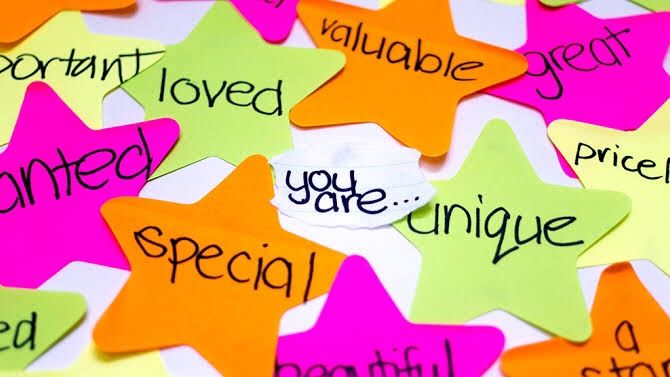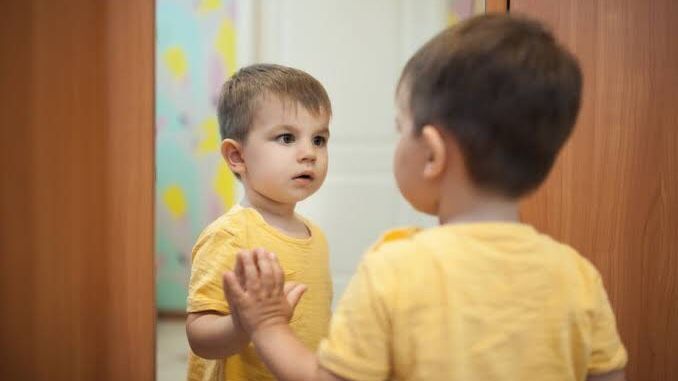Self Concept
Oct 28, 2019 • 66 views
I’m sure most of us have watched Mean Girls. Lindsay Lohan’s character in the movie starts out as a new girl who then goes on to become a member of “The Plastics”. Plastics are a bunch of popular girls in the school. Despite the fact that she didn’t like a lot of things about the group, she wanted to be a part of the group more than she wanted leave it. This happens because of the attached benefits of high social status that comes with the group. Lindsay’s character equalized being a plastic to being famous and her self concept was being warped into whoever she had to be in order to be a Plastic. We can see the changes clearly as she changes from a khaki wearing maths prodigy to a stylish mean girl. What she and others think about her changes and this transformation is a change in her self concept.

The plastics. Source: thesun.co.uk
We all have an image of ourselves. I’m sure we all think in a certain way about ourselves. “I am a good friend” or “I am a kind person” are all a part of what we call the self-concept. According to the American Psychology Association, Self Concept may be defined as “one’s description and evaluation of oneself, including psychological and physical characteristics, qualities, skills, roles and so forth”. It contributes to an individual’s sense of identity over time. When we evolve, we develop and regulate our self-concept on the basis of our knowledge of ourselves. It is multidimensional and can be categorized into these individual aspects. For instance how you feel about your physical body maybe be quite different from what you feel about your soul or spirit.
Theories of Self Concept
In psychology, there are multiple theories surrounding this concept, however, most theorists agree on the following points.
On the broadest level, self-concept is the overarching understanding we have about who we are and involves cognitive and affective assumptions about ourselves
Self-concept is multi-dimensional, integrating our perceptions of ourselves in many different aspects (e.g. social, cultural, spiritual, physical, emotional)
It is learned, not inherent; it is affected by biological and environmental factors
It is affected by genetic and environmental factors, but social interaction often plays a major role
Self-concept evolves during childhood and early adulthood when it is easier to change or update; it can be changed in later years, but it is more of an uphill battle when people have come up with ideas about who they are. When it does, our concept of self is "congruent." If not, our concept of self is "incongruent" (Cherry, 2018B; Gecas, 1982).
The Components Of Self Concept
Many times these components are taken up to be synonymous with self-concept, however, it is not the case. They are Self-esteem, self-image, and Ideal self.
Self Esteem

Positive perception of one’s qualities. Source: socialpsychonline.com
Self Esteem is the degree to which the qualities and characteristics contained in one’s self-concept are perceived to be positive.
It represents a person's physical self-image, perception of their achievements and abilities, and beliefs and perceived performance in living up to them, as well as how others view and react to that person. The more optimistic the aggregate view of these attributes and qualities, the higher the self-esteem. An important ingredient in mental health is considered a reasonably high degree of self-esteem, while low self-esteem and feelings of worthlessness are typical depressive symptoms.
Self Image

Self Image. Source:psychologytoday.com
It's one's own view or concept of oneself. Self-image is a crucial aspect of the character of an individual that can define relationship success and a sense of well-being in general. A negative self-image also triggers dysfunctions and conducts that are self-abusive, self-defeating, or self-destructive. Self-image is similar to the idea of self, but it is less broad. Self-image is how you see yourself and you don't have to reconcile it with reality. The self-image of a person is focused on how he or she sees him or herself, while self-concept is a more detailed self-evaluation, largely based on how a person sees himself, respects him or herself, thinks about himself, and feels about himself.
Ideal Self

Ideal self. Source: slideshare.net
In models of self-concept, ideal self is a mental representation of an exemplary set of psychological attributes that one strives or wishes to possess. It is basically who you want to be. The more congruent your real self is with your ideal self, the happier you will be.
How Is Self Concept Formed?

The framework for self-concept is set in childhood. source: theconversation.com
Self Concept fluxes throughout life, but childhood is when the framework is set.
Infants from age 0-2 years need consistent, loving relationships to form a positive concept about themselves. They form preferences that align with their innate sense of self. By the age of 2, with the onset of language, they form a sense of “me”. As they grow older, they see themselves as separate and unique individuals. 3-4-year-olds self-concept is descriptive rather than prescriptive or judgemental. By the age of 5-6, they transition from the “me” to “us” stage where they are more aware of the needs and interests of the larger group.
During middle childhood, children start to develop a social self wherein they figure out how we fit in with everyone else. They reference social groups and make social comparisons more often, and begin to think about how others see them.
The real explosion, however, occurs during adolescence. This is the time when individuals play with their sense of self, experiment with their identity, compare themselves with others, etc. They develop the basis of a self-concept that may stay with them for the rest of their life. Adolescents are prone to higher self-consciousness and susceptibility to peer influence and chemical changes happening in the brain. Approval from significant people in the adolescent’s life and success in areas in which the adolescent desires success are two important factors in the formation of self-concept during adolescence.
How does self-concept influence our behaviors?
Self-concept heavily influences actions because it allows an individual to decide what they can or can not achieve by self-categorization. Throughout their lives, every person has beliefs and prejudices in different categories, whether or not they are aware of them. Depending on these convictions and prejudices, people will make many of their decisions. For instance, if you perceive yourself to be an introvert, then you are less likely to engage in social interactions with strangers at a party.
Self-concept has also made into marketing. Our self-concept influences sour wants and needs. There is a reason why people buy certain clothing, cars, etc. After all, brands and companies can profit from targeting certain desirable identities. Another concept is Self-concept attachment, which refers to the attachment we form to a product as it influences identity. For example, someone who loves their Sparkly boots may also consider it as a status symbol that also represents their “outdoorsy” side.
Moreover, Our self-concept drives our motivations, methods, and experiences with communicating with others. For example, if you see yourself as someone who is always right (or who must always be right), you may find it difficult in communicating with others in times of disagreements. If that need is accompanied by an acceptance of aggression, you may use hostility, assertiveness, and argumentativeness to attack the self-concepts of the people you are debating instead of discussing their positions (Infante & Wigley, 1986).
Self-concept and academic achievement is also a positive feedback loop, as actions beget similar actions and identity to match. Marsh (1990) in his longitudinal study found that students with a more positive academic self-concept achieved greater academic success the following year.
How to Improve self-concept?

Raising self-concept. Source:kidsbaron.com
It’s understandable that not everyone has a positive self-concept. But no worries! It can be improved. Use the following tips for a healthier self-concept.
Use positive self-affirmations.
Adopt a realistic set of expectations.
Avoid Comparison.
Be kind to yourself and to others
Do what you are good at
Accept mistakes and learn from them
Celebrate small achievements
Make connections
Take a self-appreciation break
Let go of perfectionism
You can find more help here!
